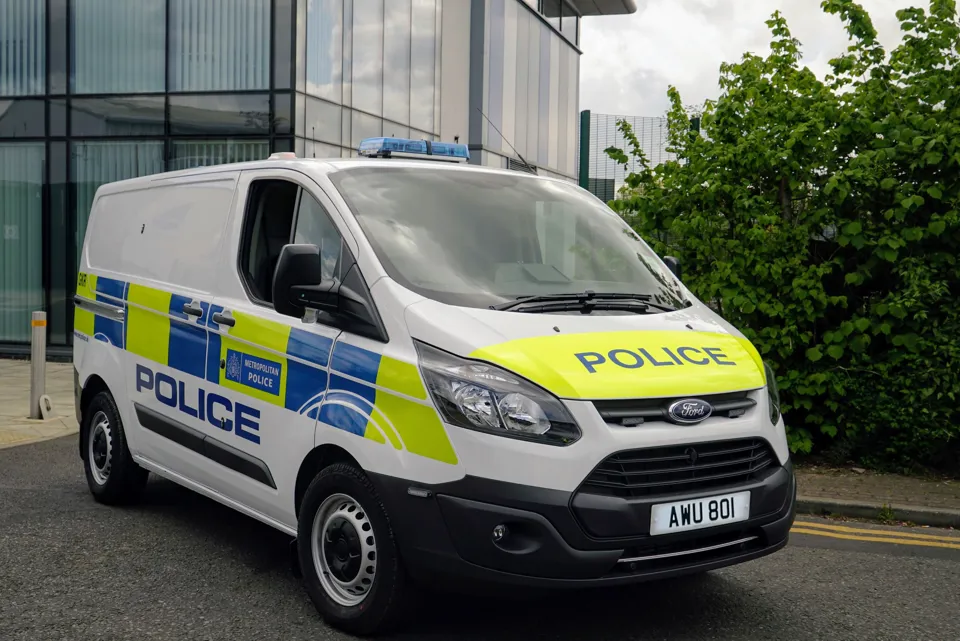Fleets taking part in the Ford Transit plug-in trial are hoping that hybrid technology could help them reduce their reliance on diesel.
The project, supported by Transport for London (TfL), features a 12-month trial of 20 new Ford Transit PHEVs that aim to reduce local emissions by running solely on electric power for the majority of inner-city trips.
Equipped with range extenders, the fleet is not limited by battery range, says Ford, making them capable of the longer journeys that may be required by businesses and bluelight services.
So far, five fleets have signed up to the trial, which starts in the autumn, including the Metropolitan (Met) Police with two Transit PHEVs: one marked for second response to traffic accidents and one unmarked as a forensic support unit. TfL will also be putting two of the vans to work.
Clancy Plant, Addison Lee and British Gas have yet to confirm van numbers and usage, while Ford is also in talks with other interested fleets.
Jiggs Bharij, head of fleet services for the Met Police, said: “We’re delighted to be working with Ford on this innovative PHEV Transit trial.
“Commercial vehicles form an integral part of the Met fleet and we are keen to explore the possibility of reducing our reliance on diesel fuel in this sector.
“The PHEV Transit is an important step in conducting a real-world trial of the technology and to assess the vehicle’s capability.”
Bharij told Fleet News he will be measuring their effectiveness by looking at how the vehicles perform in a demanding 24-hour response role and with the installation of additional police equipment. Running costs and emissions would also be assessed.
Andy Barratt, chairman and managing director, Ford of Britain, said: “Our customers have always been at the centre of our development, so working directly with our fleets is vital in delivering an electrified CV that adds value to the many different businesses going in and out of our cities every day.”
Using a Ford telematics system, each Transit PHEV involved in the trial will collect data on the vehicles’ financial, operational and environmental performance to help understand how the benefits of electrified vehicles could be maximised.
Ben Plowden, TfL director of strategy and surface planning, said that he will also be assessing their operational viability and financial performance.
Understanding how the vehicles compare to similar ones on the fleet in terms of tailpipe pollutant emissions and ‘well-to-wheel’ carbon emissions would also be critical, he said.
“The freight sector’s transition to alternative powertrains is central to cleaning up London’s toxic air,” added Plowden. “TfL continues to lead by example by increasing the number of its own vehicles that are electric and will find the data from these trials an invaluable resource for the LoCity programme, which encourages the uptake of low emission commercial transport.”
The Transit plug-in trial is being supported by a £4.7m grant from the Advanced Propulsion Centre (APC).
The APC manages partnerships between equipment companies, suppliers and manufacturers to develop new powertrain technologies in the UK and bring them to market. The Government and industry is providing £1 billion to the programme over a 10-year period and, to date, it has funded £325m of projects.
Its support for the London trials recognises the importance of reducing emissions in the capital, which has become a central policy area for mayor Sadiq Khan.
Commercial vehicles in London make 280,000 journeys on a typical weekday, travelling eight million miles.
Vans represent 75% of peak freight traffic, with more than 7,000 vehicles per hour driving at peak times in central London.



















Login to comment
Comments
No comments have been made yet.